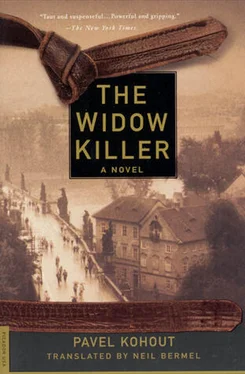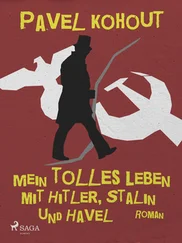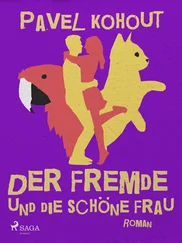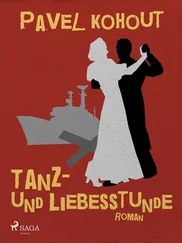“ And where can we find her?”
“ Well, here.”
“ You mentioned Brno.”
“ We were at a hotel in the city. I was just there with the daughter too.”
“ And who is the mother?”
“ My boss’s wife. He’s the administrator. They live here at the castle. But you won’t tell her about her daughter?”
“ No,” Buback said.
“ And could you interview her… inconspicuously, somehow?”
“ Yes,” Buback said.
What is it with me? he wondered. First I wish he would get beaten to a pulp and now I’m ready to throw up a triple smoke screen for him? Am I really going to cover for him to his boss and two mistresses?
Except… what was the point in turning him in? His detective’s sixth sense told Buback that although this man had committed an atrocity, it was not a sign of any inborn deviance, but an eruption of anger at his humiliated masculinity. He felt sure the alibi would hold up. The man radiated charisma; he would not need to substitute torture and murder for pleasure — not with women young and old beating a path to his door. No, today’s trip would serve only one purpose: Buback could try to get closer to his guide, and in doing so, fulfill his true mission.
But given his midday musings, what was his true mission anyway…?
Morava was more and more surprised. Throughout their unequal cooperation (with Morava doing all the work while the other merely watched over his shoulder), he had found the German to be a patronizing prig, possibly not as arrogant as others from the Gestapo, but certainly not a colleague one could trust. However, in the last couple of hours Buback had changed beyond belief.
Letting Morava visit his mother, offering to intervene on behalf of Jitka’s father, and finally jumping in so unconventionally during the vintner’s interrogation could all be classic tricks — if Beran was right— but it was certainly easier to breathe in this new atmosphere. A thaw in relations would bring advantages to both sides; you just had to prick up your ears and watch your mouth a bit more closely.
They turned Malatínský over to the policeman and casually asked the administrator’s wife for some rye coffee while her husband was down in the cellars. When she brought it to them, Morava abruptly translated Buback’s question for her: where had she been on February fourteenth and whom had she been with? The handsome woman’s jaw fell open and her lips trembled; suddenly she sagged into a heap of misery. Before she could burst into tears or faint, Buback had Morava tell her that everything she said would remain confidential; her husband would not find out.
She collected herself with surprising speed, grabbed their promise like a life preserver, and made such an ardent confession that Morava felt hot under the collar. Yes, they had been together those two days and nights in February as usual, but this month they hadn’t gone, because he thought they shouldn’t always leave at the same time, so instead he went to visit his mother; yes, they always registered legally in the hotel, with his friend the reception clerk putting them in separate rooms, but she’d been with him in one of them and swore he hadn’t gone farther than the toilet the whole time; yes, she would even put it in writing, but for God’s sake, she was relying on their word that none of the local men would see it, because otherwise it’d be her husband doing the murdering.
With Buback’s permission, Morava wrote out a rather short declaration; her hands shook, but she managed to sign it. The two of them finished their drink and returned to the office. Malatínský was chatting affably with the officer. He was still laughing as they walked in, but stood up respectfully. And it was Buback who with an almost genial nod indicated to him that his account had been confirmed. In return, Malatínský docilely let Morava photograph him head-on and in both profiles to show to the Prague caretaker (can’t be too careful!). With that they were finished and could go home.
Just before they left, Morava had a memorable experience. As he relieved himself at the employees’ ramshackle urinal while Buback went to take in some fresh air, the door banged open and the local policeman appeared at his side.
“Sir, what should we do?” the policeman asked.
“Nothing. Unless we send for him, you can leave him alone,” Morava replied.
“That’s not what I mean. What should we do in general? If things heat up? Say, if the Germans try to mobilize us. Who do we answer to?”
“How long have you been in the police?”
“Urn… since 1920.”
Morava searched the man’s eyes. This was not the panicky fear of a collaborator, but the understandable anguish of a man who for twenty-five years had served the law under various changing powers. The young Czech thanked fate that his work, dismal as it could be, was basically independent of the political weather.
“Or if the Russians come, the way things are looking,” the man continued nervously. “Who should we listen to?”
Morava was too much Beran’s pupil to trust his feelings completely. A cop who had survived every regime could be a perfectly corrupt bastard and a provocateur, maybe even in the Germans’ pay and under Buback’s thumb. He decided to play the wise man.
“Did you serve in the army?”
“Yes, the Czechoslovak one.”
“So you took an oath?”
“Yes. But under the Germans I also….”
“Willingly?”
“No…”
“So what’s your question?”
They both buttoned their flies.
“Thank you,” the uniformed man said. “We’ll keep our fingers crossed until it blows over.”
Before he climbed into the car, Morava spotted the administrator’s wife on the second floor of the castle. Her corpulent husband in his vest, plus fours, and rubber galoshes did not seem like a passionate soul prone to murderous rages. Despite this, the woman in the window above him briefly clasped her hands and put a finger to her lips. A woman beloved by her husband loved her lover, who made love to her beloved and apparently loving daughter. Jan Morava could not understand their behavior; he felt a deep repugnance toward them.
Why not give this shady vintner a draft of the truth? he wondered. Idiot, he rebuked himself instantly; you work in a cemetery, where every day new graves fill with victims of the chain of abandoned passion and instinctual reaction. Maybe the only reason those feelings don’t affect you is that heaven sent you an angel in the form of Jitka. So don’t play the righteous man, to yourself or to her!
The face of the land they had crossed not long ago had changed beyond recognition. In the twilight, only teams with ploughs, harrows, and seed drills passed by; the earth appeared to have simply swallowed up the gigantic army, if it had not in fact been a mere hallucination. Buback, who was used to the appearances and disappearances of military forces, could easily spot the traces of their presence everywhere and was impressed by their unbroken discipline.
From the snatches of conversation he had overheard in the office and Prague’s German House bar, he pieced the picture together with what he dimly remembered from school geography lessons. This hilly landscape stretching north across the Moravian-Slovak borderland to Silesia and linking up with the Czech-Moravian highlands farther west took the shape of a mighty natural bulwark. The battle that would decide the fate of the war and the future shape of the world would definitely be fought here.
How must the boy feel, with his mother here, he thought, and immediately asked him. He learned that his companion had convinced her to move to Prague until the wedding. In return, he got an equally intimate question: did the chief inspector also have a family?
Читать дальше












